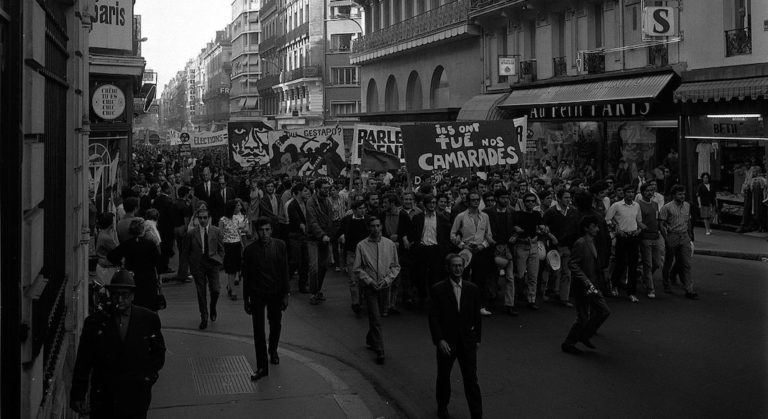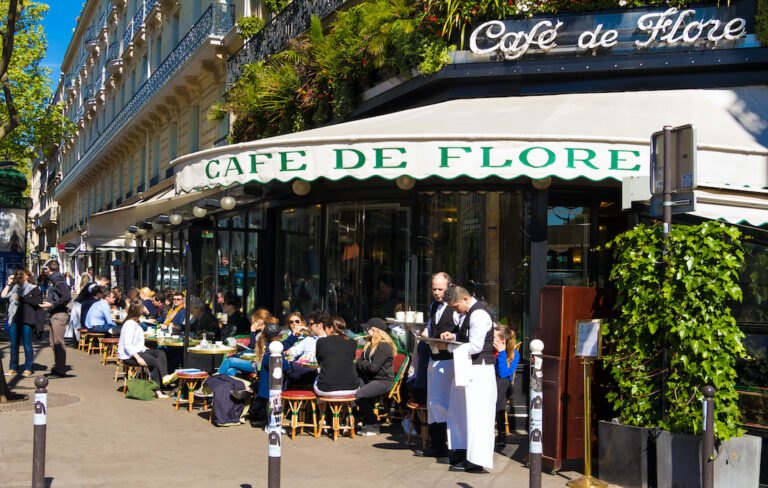The oldest man on the stage, the one who wore a black jacket (not a blazer, a jacket) to the first presidential debate, the one who rides the subway and uses his iPhone with his pointer finger like a true baby boomer. This is the man gaining in the French presidential election polls.
Jean-Luc Mélenchon is France’s unexpected comeback candidate. Essentially tied for third with conservative Francois Fillon (both hovering around 19%) in the most recent polls, he’s made himself a real contender after many counted him out. With centrist Emmanuel Macron and right-wing nationalist Marine Le Pen basically tied for first with 23% and 24% respectively, he certainly has some work to do before the first round of voting on April 23rd. So how did this—to be reductionist about it—socialist candidate gain nearly 10% of the vote in just over two months? And what does he want for the country?
(Undo the) Establishment Candidate
If the French are looking for an anti-establishment candidate, Mélenchon (age 65) is a bit of a paradox. He’s been in government since 1983 and politically active since 1976 when he joined the Socialist Party. He’s held a variety of positions from municipal councilor to cabinet minister and, currently, is a member of European Parliament. Despite his deep ties to government, he wants to end the current Fifth Republic and found a new Sixth Republic (so essentially he wants to redesign the structure and re-designate the responsibilities of the government).
Political Party: Socialist…?
For over 30 years, Mélenchon was a member of the socialist party. In 2008, he left the party, deciding that they were too pro-business. He represented the Front de Gauche (Left Party) in the 2012 presidential election when came in fourth in the first round of voting with 11.1% of the votes. In February 2016, he founded his own party, La France Insoumise (Unsubmissive France). The platform is called “L’avenir en commun” (“A common future”).
Domestic Policy
Mélenchon’s platform is very worker-focused. He wants to reenforce the current work week of 35 hours, set a tax rate of 100% on those earning more than €33,000 per month, increase hourly minimum wage by 15% from €9.76 to €11.22, lower the retirement age from 62 to 60, and fund a 100 billion-euro stimulus package to “fight poverty, improve services, and protect the environment.” He believes immigrants and refugees are treated horribly by the current French government, and hopes to change that. He favors pulling out of nuclear power completely and working towards 100% renewable energy.
International Policy
Mélenchon is anti-NATO, anti-military intervention, pro-Russian alliance (“There is no use showing up armed to the teeth, it’s better to talk,” he says), and kind of anti-EU. He wants to completely renegotiate France’s role in the European Union (EU). And if it can’t be negotiated… a referendum would be organized and France’s participation in the EU will be “up to the French people.”
If you haven’t noticed, Mélenchon and Le Pen’s platforms have some similarities regarding Russia, Syria, NATO, and the EU. But according to Politico EU, “Nothing annoys Melenchon more than being told he shares many positions with Le Pen.” He’s highly critical of her: “Her program will never be applied. A chair, a table or a bench will be elected before she is.”
His Biggest Fans: Millennials
Mélenchon’s worker-oriented platform appeals to France’s youth who have incredibly high employment rates, hovering around 24%. Similar to Bernie Sanders, he’s got a reputation as a crotchety old man with excellent comebacks. (Yet another election where the youngest voters flock to the oldest candidate.) His online presence has been bolstered by memes and several video games, including one Whack-a-Mole-style game to nail down his platform, and one he released on April 10th called Fiscal Kombat. Users can battle businessmen with the arrow keys. Past President Nicolas Sarkozy makes an appearance, as well as IMF President Christine Lagarde, and several businessmen hoping to conceal their earnings in Switzerland. (This is the version of Pokémon Go-to-the-Polls Hillary Clinton wanted.) The bilingual Facebook page “Millennials for Meluche” features of cover photo with Mélenchon wearing sunglasses in front of wind turbines.
So how is he doing so well?
His rise in the polls can be attributed to a combination of falling polls for the actual Socialist Party candidate Benoît Hamon, and attention after his strong debate presence. Following the debates, his approval score jumped from 28% approve to 47% approve. Despite his success in both televised debates, Mélenchon was not interested in a third televised debate, and was essential in getting it canceled.
Will he win?
It’s hard to say. His poll numbers have been steadily rising for several months now making this more of a four-way race. He’s likely to take votes from Le Pen, with whom he shares many views. Though as the Bernie Bros know, it takes more than the millennial vote and dissatisfaction with other candidates to make it to the finals. With the Socialist Party splintering between presidential candidate Benoit Hamon, the expected-presidential-candidate-but-he-lost-in-the-primaries candidate Manuel Valls, Macron (a centrist ex-socialist), and Mélenchon (a social democrat ex-socialist), it’s hard to imagine him rallying a coalition to vote him into office.





